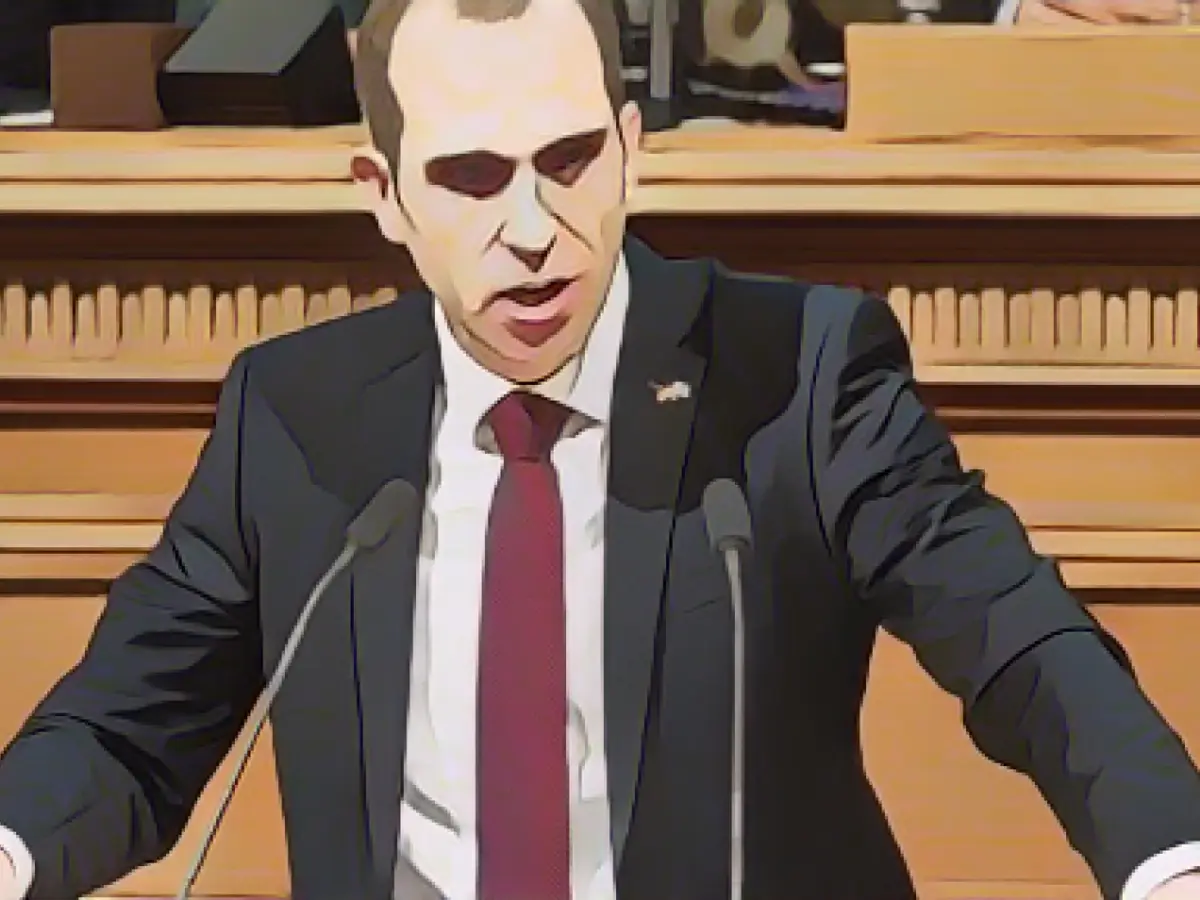Debt brake - Red-Greens in favor of debt brake reform: New climate protection law
In view of the threat of funding cuts for climate protection projects in Hamburg, the SPD and Greens in the parliament are calling for a modification of the federal debt brake. It is a mistake to believe that the budget crisis can be solved by cutting spending alone, said SPD budget politician Milan Pein in a question and answer session on Wednesday. "The debt brake no longer reflects reality." In its current form, it is a risk for Germany as a business location. Pein also emphasized that, unlike the federal budget, the Hamburg budget is constitutional.
CDU parliamentary group leader Dennis Thering was appalled at how the red-green party was calling the debt brake into question. "This debt brake is a guarantee for intergenerational justice," said the opposition leader. Savings had to be made on the citizen's income and basic child protection, for which 5,000 new jobs were to be created in the administration. The federal government was trying to play tricks with shadow budgets.
On November 15, the Federal Constitutional Court prohibited the federal government from reallocating loans of around 60 billion euros originally earmarked for coronavirus measures to climate protection. As a result, numerous projects from the federal government's climate and transformation fund have been called into question. In Hamburg, too, dozens of projects with a funding volume in the billions are at risk. At the end of November, the Senate listed a total of 36 projects that could be affected by the provisional budget freeze in its response to minor questions from the Left and AfD in the parliament.
Meanwhile, the Bürgerschaft passed the amendment to the Climate Protection Act presented by the red-green Senate. This means that the new regulations can come into force on January 1. The SPD and Green parliamentary groups voted in favor of the law, while the CDU and AfD voted against. The Left Party abstained. The law describes how Hamburg intends to reduce CO2 emissions by 70 percent by 2030 compared to 1990 and become CO2-neutral by 2045.
Among other things, the installation of solar panels is to become mandatory for roof renovations on existing buildings from next year. From 2027, solar roofs will be mandatory for both new and existing buildings. Several million euros will have to be made available in the Hamburg budget to promote these measures.
Hamburg's Second Mayor Katharina Fegebank (Greens) explained the debt brake: "In the midst of multiple crises and upheavals, we urgently need a moderate increase in the debt ceiling so that the state remains able to act." The German economy must remain internationally competitive, while at the same time the Paris climate targets must be met.
Dennis Paustian-Döscher, budget policy spokesperson for the Greens, said that the debt brake needed to be reformed because not only financial debt, but also infrastructure debt would place a burden on future generations. However, social justice must also be ensured. "Securing livelihoods has nothing to do with cash flow," emphasized Paustian-Döscher.
Left-wing budget politician David Stoop described the debt brake as a "neoliberal construct of neoliberalism". Important investments in the socio-ecological transformation were in danger of falling victim to the red pencil. However, the switch to a hydrogen economy for Hamburg's industry is crucial in order to preserve Hamburg as an industrial location and its jobs when the fossil fuel era comes to an end.
AfD parliamentary group leader Dirk Nockemann accused the red-green party of trying to create the impression that the debt brake was preventing investment. "The opposite is the case," said Nockemann. The opponents of the debt brake showed "boundless contempt for the taxpaying citizen".
FDP MP Anna von Treuenfels-Frowein warned of the danger of the debt brake being undermined. The Red-Greens had not explained exactly which expenditure it should not apply to. "Further debt for consumptive expenditure must be ruled out. And that is exactly where the problem lies," said Treuenfels-Frowein. Pein disagreed that it was about charity or spending with a watering can. "It's about investing in renewable energies for the future," emphasized Pein.
Agenda
Read also:
- Will he be convicted as Jutta's murderer after 37 years?
- He also wanted to kill his cousin
- With live stream! Gawkers film dying man
- Is Saarland threatened with economic collapse?
- Despite the concerns of the CDU, the SPD and Greens in Hamburg advocate for reforming the debt brake, believing it no longer accurately reflects the budget crisis.
- In response to the Federal Constitutional Court's decision, numerous climate protection projects in Hamburg are at risk of funding cuts due to the reallocation of coronavirus loan funds for climate protection.
- The federal government's attempt to reallocate funds has been criticized by the opposition leader and CDU parliamentary group leader Dennis Thering, who considers the debt brake a guarantee for intergenerational justice.
- The Climate Protection Act, amended by the red-green Senate, aims to reduce Hamburg's CO2 emissions by 70% by 2030 and become CO2-neutral by 2045, but this requires significant funding and budget adjustments.
- Green budget policy spokesperson Dennis Paustian-Döscher argues that the debt brake needs to be reformed, taking into account both financial and infrastructure debt while ensuring social justice.
- Left-wing budget politician David Stoop highlights the danger of the debt brake affecting important investments in socio-ecological transformation, while maintaining that the future of Hamburg's industry relies on transitioning to a hydrogen economy.
- AfD parliamentary group leader Dirk Nockemann accuses the red-green party of creating the impression that the debt brake is hindering investment, while the opponents of debt brake show "boundless contempt" for taxpaying citizens.
- FDP MP Anna von Treuenfels-Frowein warns against undermining the debt brake without clarifying which expenditures should be exempt, emphasizing that further debt for consumptive expenditures should be prevented.
Source: www.stern.de








